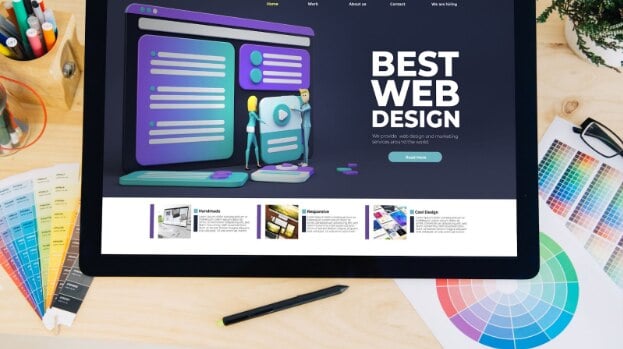In an era where everything is just one click away, a hotel’s website serves as its digital representative. Indeed, the hospitality industry undergoing a significant digital transformation. Everyone finds this change as electrifying as it is necessary.
Without a well-designed, user-friendly website, a hotel may be akin to an undiscovered gem, hidden beneath the vast expanse of the digital ocean.
The Pivotal Role of a Hotel’s Website
A website acts as the gateway to a hotel’s world. It is where prospective guests get a first taste of the experience they can expect. A website that is lacking in appeal, functionality, or easy navigation can deter potential guests, which can, in turn, affect a hotel’s business prospects adversely.
Significance of a Well-Designed Hotel Website
A hotel’s website is not just a place to book rooms – it is the first impression a guest forms. A lackluster or difficult-to-navigate website may turn potential guests away, negatively impacting the business. It becomes a wake-up call, a stark realization of the pressing need for high-quality web design in the hospitality industry.
Elevating Guest Experiences with Quality Web Design
There is a firm belief in the power of web design to enrich guest experiences. It is an art form, the meticulous blend of colors, typography, and images, paired with functionality that can evoke comfort and excitement.
The Power of Visuals
Visual appeal is integral to web design. Selecting images and graphics that reflect a hotel’s unique allure is an art. High-quality visuals pique the curiosity of potential guests, encouraging them to explore further.
Smooth Booking Experience
An intuitive, easy-to-use booking process is crucial for a hotel’s website. A seamless booking experience can be the deciding factor between a guest confirming their reservation or not.
When a website is designed well, all the needed information is readily available and easily accessible, eliminating any potential obstacles for the user.
Personalized Engagement
The digital era demands personalized experiences. Tailored content that caters to guest preferences can transform a website from simply functional to truly engaging.
Innovative hotels like Ritz-Carlton offer unique local experiences for each of its properties, thereby enhancing the interaction and overall experience for their guests.
Interactive Elements
Incorporating interactive features such as virtual tours and 360-degree images into a hotel’s website design can create an immersive experience for the user. These features can give prospective guests a virtual taste of the property, adding a level of realism that still images cannot provide.
Efficient Communication
Good communication is at the heart of hospitality. Features like live chat and messaging systems on a hotel’s website can provide immediate responses to guest queries, thereby enhancing their overall satisfaction.
The feeling of being heard and understood is highly valued, and a well-designed website can facilitate this.
Review and Feedback Integration
The integration of reviews and feedback is another significant aspect of hotel website design. The input that guests provide can be invaluable for continuous improvement. As such, feedback mechanisms are considered essential features of any hospitality website.
Guest Satisfaction – The End Goal
All these elements point towards one objective – guest satisfaction. A hotel’s website is often the first point of contact with potential guests. Therefore, the quality of their online experience can set the tone for their expectations. A thoughtfully designed website can elevate the guest’s experience, making them feel valued and appreciated.
In the ongoing digital transformation of the hospitality industry, the focus remains on designing and developing innovative, user-friendly hotel websites. The aim is to enhance guest experiences, one digital touchpoint at a time. And for anyone seeking the fruits of digital transformation, remember – the journey of a thousand miles begins with a single click.





